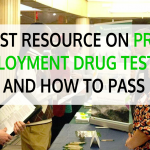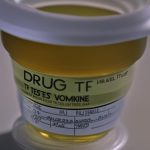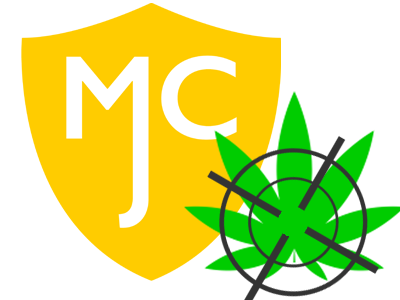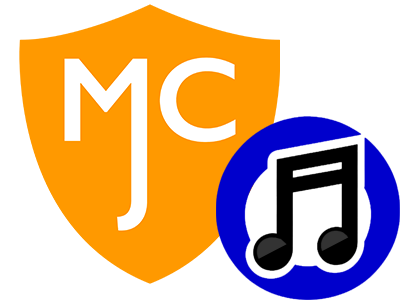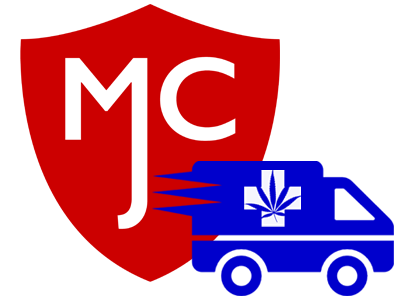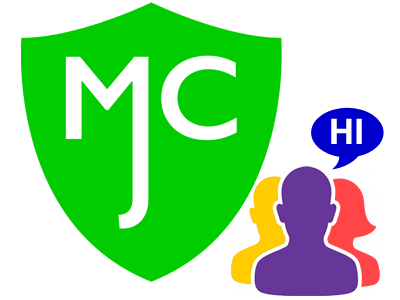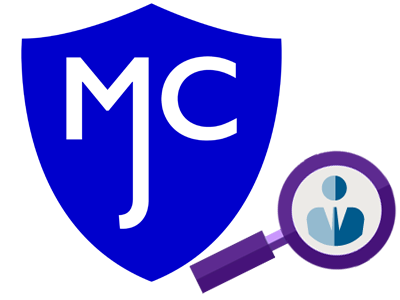
As advancements in technology continue to revolutionize various industries, the field of drug testing is not left behind. In recent years, a new breakthrough in drug testing has emerged, offering a non-invasive and efficient method for marijuana detox and testing.
This groundbreaking innovation involves the use of paper spray mass spectrometry to analyze the molecules in a fingerprint. With a reported accuracy rate of 99 percent, this method can quickly detect a variety of drugs, including marijuana, cocaine, and heroin.
Key Takeaways:
- Technological innovations have transformed the field of drug testing, specifically in marijuana detox and testing.
- Paper spray mass spectrometry offers a non-invasive and efficient method for analyzing drug molecules in fingerprints.
- The accuracy rate of this method is reported to be 99 percent, ensuring reliable results.
- Various drugs, including marijuana, cocaine, and heroin, can be detected using this innovative approach.
- Advancements in technology continue to enhance drug testing capabilities, improving accuracy and efficiency.
Advantages of Fingerprint Drug Testing
Fingerprint drug testing offers numerous advantages in the field of drug detection and analysis. This innovative method utilizes non-invasive techniques to provide quick and accurate results, making it a preferred choice in various settings. Here are some key advantages of fingerprint drug testing:
1. Non-Invasive Drug Testing:
One of the biggest advantages of fingerprint drug testing is its non-invasive nature. Unlike traditional methods that require blood or urine samples, fingerprint drug testing collects the sample through a simple and painless process. This makes it more comfortable for individuals undergoing the test, while still providing accurate results.
2. Quick Results:
Another significant advantage of fingerprint drug testing is the speed at which results can be obtained. With this method, the analysis can be completed within minutes, allowing for immediate detection of drug use. This is particularly beneficial in situations where time is of the essence, such as emergency overdose cases or pre-employment screenings.
3. Authenticity and Eliminating Dishonest Practices:
Fingerprint drug testing offers an authentic sample that cannot be tampered with or substituted. Since each fingerprint is unique to an individual, it provides a reliable and secure method for drug testing. This eliminates the risk of false results due to sample contamination or manipulation, ensuring the integrity of the testing process.
4. Versatile Applications:
Due to its non-invasive nature and quick results, fingerprint drug testing has a wide range of applications. It can be effectively used in workplaces, hospitals, treatment centers, and other settings to ensure a drug-free environment. Additionally, it can play a crucial role in emergency situations, helping medical professionals identify the substances causing an overdose and provide timely treatment.
With its non-invasiveness, quick results, authenticity, and application versatility, fingerprint drug testing is poised to revolutionize the field of drug detection and testing. Its advantages make it an ideal choice for various industries and scenarios, providing efficient and accurate results while maintaining integrity and security.
Potential Applications of Fingerprint Drug Testing
Fingerprint drug testing has the potential to revolutionize various aspects of drug monitoring and testing. Its non-invasive nature and quick results make it suitable for a wide range of applications, including workplace drug testing, emergency situations, and routine drug monitoring.
Workplace Drug Testing
- Fingerprint drug testing can play a crucial role in ensuring a safe and drug-free workplace environment.
- It provides employers with a quick and reliable method to detect drug use among employees.
- The non-invasive nature of the test eliminates the need for invasive procedures such as urine or blood tests.
- With fingerprint drug testing, employers can promptly identify drug use and take appropriate actions, such as counseling or disciplinary measures.
Emergency Situations
- In emergency situations, time is of the essence, and fingerprint drug testing can provide rapid results.
- Medical professionals can use this method to quickly identify the substances that have caused an overdose.
- By knowing the specific drugs involved, healthcare providers can administer the appropriate treatments and interventions.
- This can potentially save lives and improve the overall effectiveness of emergency medical care.
Routine Drug Monitoring
- Doctor’s offices and clinics can benefit from incorporating fingerprint drug testing into routine drug monitoring procedures.
- It offers a non-invasive and convenient method to monitor patients for compliance with prescribed medications or to detect illicit drug use.
- With quick results, healthcare professionals can make informed decisions about a patient’s treatment plan.
- Fingerprint drug testing can also aid in identifying potential drug interactions and improving patient outcomes.
Overall, fingerprint drug testing has the potential to significantly enhance drug monitoring and testing practices. Its versatility and accuracy make it a valuable tool in various settings, including workplaces, emergency medical care, and routine healthcare. As technology continues to advance, we can expect further developments and applications of this innovative method.

Implications for Drug-Impaired Driving Testing
When it comes to ensuring road safety, drug-impaired driving is a serious concern that requires effective testing methods. While fingerprint drug testing using paper spray mass spectrometry has shown promise in detecting drug use, there are still uncertainties regarding its ability to measure the specific level of impairment for drug-impaired driving.
As technology continues to advance, it is crucial to conduct further research to determine whether fingerprint drug testing can effectively measure impairment and be utilized as a reliable test for drivers. This research is essential in order to develop accurate and standardized guidelines for drug-impaired driving testing. Without accurate and reliable testing methods, it becomes challenging to enforce appropriate measures to prevent drug-impaired driving incidents.
By improving the accuracy and reliability of drug-impaired driving testing, we can enhance public safety on the roads. This will not only protect individuals and their passengers but also safeguard other innocent road users. The development of suitable testing methods can assist law enforcement agencies in effectively identifying and addressing drug-impaired driving cases.

Technology has the potential to play a crucial role in combating drug-impaired driving. By refining the methods for detecting impairment, we can help create a safer and more responsible driving culture. Ensuring accurate testing measures will support law enforcement agencies, policymakers, and communities in their efforts to prevent drug-impaired driving and promote responsible behaviors on the road.
Seeking Help for Drug or Alcohol Misuse
If you or someone you know is struggling with substance misuse, it’s crucial to seek help. We understand that overcoming drug or alcohol addiction can be a challenging journey, but professional drug and alcohol treatment programs can provide the necessary support and resources for recovery.
At our treatment center, we offer compassionate and evidence-based programs tailored to meet each individual’s unique needs. Our team of experienced medical professionals and therapists are dedicated to helping individuals navigate their journey towards long-lasting recovery.
Contacting one of our admissions navigators can help you explore your treatment options and determine the best course of action. Our goal is to assist you or your loved one in breaking free from the cycle of addiction and building a healthier and happier life.

The Importance of Seeking Help
Seeking help for substance misuse is vital for several reasons:
- Professional guidance: Our treatment programs are designed and overseen by medical professionals who specialize in addiction medicine. They can provide expert guidance and support throughout the recovery process.
- Careful assessment: Our team will conduct a thorough assessment to determine the extent of the addiction and any co-occurring mental health issues. This assessment helps customize the treatment plan based on individual needs.
- Safe detoxification: If detoxification is necessary, our medical team will ensure a safe and comfortable withdrawal process. They will monitor your physical and mental well-being and provide necessary medications and support.
- Therapeutic interventions: Our treatment programs integrate evidence-based therapies, such as cognitive-behavioral therapy, individual counseling, and group therapy, to address the underlying causes of addiction and develop healthy coping strategies.
- Aftercare support: Recovery is a lifelong journey, and our programs include aftercare support to help individuals maintain their sobriety once they have completed the initial treatment phase. This may include ongoing therapy, support groups, and relapse prevention strategies.
Remember, you are not alone in your struggle with substance misuse. With the right support and treatment, recovery is possible. Reach out to our admissions navigators today and take the first step towards a healthier and happier life free from addiction.
Levels of Care in Addiction Treatment
When it comes to addiction treatment, there are various levels of care available to address the unique needs of individuals with substance use disorders. These levels of care are designed to provide comprehensive support and treatment across different stages of recovery. By offering a range of options, addiction treatment programs can cater to the specific needs and goals of each person seeking help.
The Different Levels of Care
1. Detoxification (Detox) – This is often the first step in addiction treatment. Detox helps individuals safely and comfortably rid their bodies of drugs or alcohol under medical supervision. It focuses on managing withdrawal symptoms and preparing individuals for further treatment.
2. Residential Rehabilitation – Also known as inpatient treatment, this level of care involves staying at a treatment facility while receiving intensive therapy and support. It provides a highly structured environment that promotes healing and recovery.
3. Intensive Outpatient Programs – These programs offer a step-down level of care for individuals who have completed residential treatment or for those who require more flexibility due to work or family commitments. Intensive outpatient programs provide therapy sessions, education, and support while allowing individuals to live at home.
| Level of Care | Description |
|---|---|
| Detoxification (Detox) | Focuses on safely managing withdrawal symptoms and preparing individuals for further treatment. |
| Residential Rehabilitation | Provides a highly structured environment with intensive therapy and support. |
| Intensive Outpatient Programs | Offers therapy, education, and support while allowing individuals to live at home. |
4. Outpatient Treatment – This level of care allows individuals to live at home while attending therapy sessions and participating in various recovery activities. It offers flexibility for individuals who have completed higher levels of care and are transitioning back into their daily lives.
5. Aftercare Support – Aftercare programs are essential for maintaining long-term recovery. These programs provide ongoing support, therapy, and resources to help individuals prevent relapse and maintain their sobriety over time.
Choosing the appropriate level of care depends on factors such as the severity of the addiction, the individual’s support system, and their treatment goals. It’s important to consult with addiction treatment professionals who can assess the individual’s needs and recommend the most suitable level of care to promote lasting recovery.
Rehabilitation-Related Articles
When it comes to addiction treatment and recovery, it’s important to have access to reliable and comprehensive information. At American Addiction Centers (AAC), we are dedicated to providing a wealth of resources to help individuals navigate the journey to sobriety. Our website features a range of articles that cover various topics related to rehabilitation, offering valuable insights and guidance.
One of the key benefits of our rehabilitation-related articles is the depth of knowledge they provide. Our team of experts has extensive experience in the field of addiction treatment, and their expertise shines through in each article. Whether you’re seeking information on different treatment approaches, coping strategies, or relapse prevention, you can trust that our articles are up-to-date and based on evidence-based practices.
Not only are our articles informative, but they’re also designed to be accessible and engaging. We understand that navigating the world of addiction treatment can be overwhelming, so we strive to present information in a clear and concise manner. Through the use of tables, lists, and informative quotes, we make it easier for readers to absorb key concepts and understand complex topics.
At AAC, we believe that knowledge is power when it comes to addiction recovery. That’s why we’re committed to providing a wide range of rehabilitation-related articles that empower individuals to make informed decisions about their treatment journey. Whether you’re just starting out or looking for additional support and guidance, our articles are a valuable resource on your path to recovery.

Conclusion
Technological innovations in drug testing have paved the way for significant advancements in marijuana detox and testing. One such breakthrough is the use of fingerprint drug testing with paper spray mass spectrometry, a non-invasive and efficient method that offers promising results.
This cutting-edge technology enables quick and accurate detection of drug use with an impressive accuracy rate of 99 percent. Its versatility allows it to identify a wide range of substances, including cocaine and heroin.
With its non-invasive nature, fingerprint drug testing provides numerous advantages. It offers quick results, typically within minutes, making it ideal for various settings such as workplaces, hospitals, and treatment centers. Additionally, the authenticity of the sample eliminates the possibility of tampering or substitution, ensuring reliable and trustworthy outcomes.
As technology continues to advance, the potential for further innovations in marijuana detox and testing is vast. These advancements have the potential to revolutionize the field of drug testing, providing efficient and accurate results in diverse scenarios. With ongoing research and development, we can expect continued progress in drug testing technology and its applications.
FAQ
How does fingerprint drug testing work?
Fingerprint drug testing involves using paper spray mass spectrometry to analyze the molecules in a fingerprint, allowing for the detection of drugs.
How accurate is fingerprint drug testing?
Fingerprint drug testing boasts a reported accuracy rate of 99 percent, making it a highly reliable method for detecting drug use.
How quickly can fingerprint drug testing provide results?
Fingerprint drug testing offers quick results, often within minutes, providing immediate information regarding drug use.
Can fingerprint drug testing be tampered with or substituted?
No, fingerprint drug testing offers an authentic sample that cannot be tampered with or substituted, ensuring the integrity of the test results.
Where can fingerprint drug testing be used?
Fingerprint drug testing can be used in various settings, including workplaces, hospitals, treatment centers, and even emergency situations.
What drugs can fingerprint drug testing detect?
Fingerprint drug testing has the ability to detect a variety of drugs, including cocaine and heroin, among others.
Can fingerprint drug testing measure the level of impairment for drug-impaired driving?
Currently, it is unknown whether fingerprint drug testing can effectively measure the specific level of impairment for drug-impaired driving. Further research is needed in this area.
How can I seek help for substance misuse?
If you or someone you know is struggling with substance misuse, it is important to seek help from professional drug and alcohol treatment programs.
What levels of care are available in addiction treatment?
Addiction treatment programs offer various levels of care, including detoxification, residential rehabilitation, intensive outpatient programs, and aftercare support.
Where can I find rehabilitation-related articles?
American Addiction Centers (AAC) provides a range of articles on their website that cover various topics related to rehabilitation and addiction treatment.




